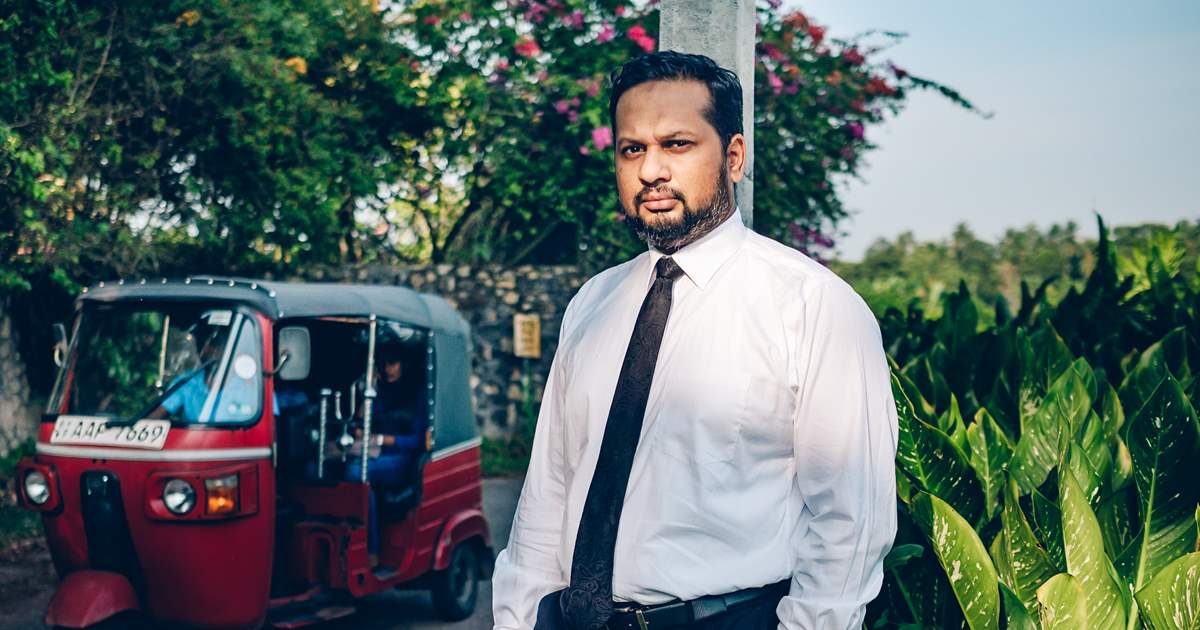
Photograph: Amnesty International
Amnesty International said it was “extremely concerned” that evidence against a Muslim human rights lawyer who was detained by Sri Lanka’s security forces under the Prevention of Terrorism Act (PTA) “may now be subject to fabrication”.
“Hejaaz is currently serving a detention order for 90 days authorized by the Sri Lankan President, even though a detention order can only be made by the Minister of Defence and Sri Lanka has no cabinet Minister for Defence,” wrote Thyagi Ruwanpathirana, Researcher at Amnesty International, this week.
“Under the notorious Prevention of Terrorism Act (PTA), one of the main tools used to perpetrate human rights violations in Sri Lanka, any “suspect” can be placed in detention – without charge and without being produced before a judge. The detention order can be renewed for a further 90 days and continue to be renewed for up to 18 months.”
Hejaaz’s detention has been highlighted by several international actors, including at the UN Human Rights Council by the Core Group on Sri Lanka, which includes Canada, Germany and the UK.
The lawyer was detained earlier this year and is still being held without charge. “Hejaaz has been subject to an unfair character assassination in local media by the authorities in an environment where anti-Muslim sentiment is rife, and prominent Muslim professionals have been unfairly targeted in the recent past. Hejaaz’s background is far from the picture that the authorities have tried to paint,” Ruwanpathirana added.
“The Sri Lankan government must immediately restore Hejaaz’s due process rights, including producing him before a judge, allowing him to challenge the grounds of his detention, ensuring that he has unfettered access to his family and lawyers, and, in the absence of any charges of credible evidence of a crime being committed, release him.”
“And to stop further such travesties of justice taking place, the Sri Lankan authorities should finally repeal the abusive PTA, and provide people who have suffered because of it the justice they are owed in the form of remedies and reparations.”
See the full post from Amnesty International here.
We need your support
Sri Lanka is one of the most dangerous places in the world to be a journalist. Tamil journalists are particularly at threat, with at least 41 media workers known to have been killed by the Sri Lankan state or its paramilitaries during and after the armed conflict.
Despite the risks, our team on the ground remain committed to providing detailed and accurate reporting of developments in the Tamil homeland, across the island and around the world, as well as providing expert analysis and insight from the Tamil point of view
We need your support in keeping our journalism going. Support our work today.
For more ways to donate visit https://donate.tamilguardian.com.

